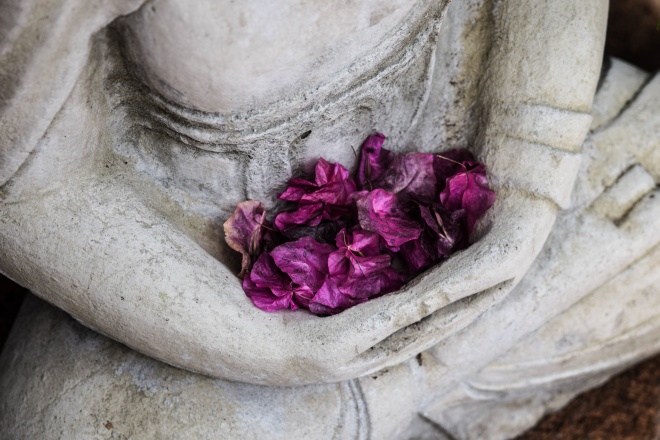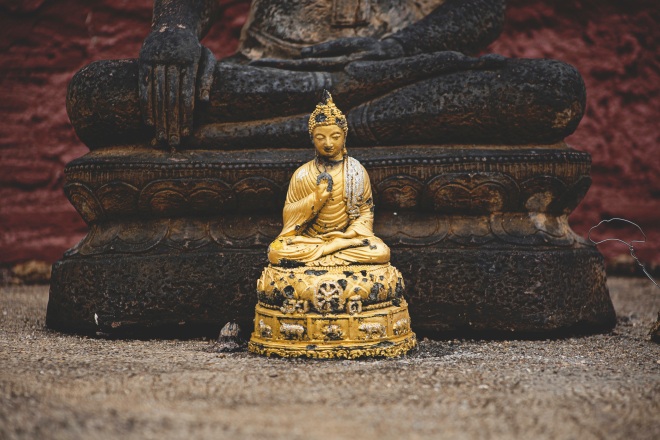The recent “Sapiens – A Brief History of Humankind” by Yuval Noah Harari attempts to be the meta-history book of our time. I heard that the book was excellent from a few friends who think that everything popular is excellent.
This passage on Buddhism and happiness confirmed my view that the book is politicised snake oil. I am very open to being convinced otherwise.
Harari: “For 2,500 years, Buddhists have systematically studied the essence and causes of happiness, which is why there is a growing interest among the scientific community both in their philosophy and their meditation practices.”
“Buddhism shares the basic insight of the biological approach to happiness, namely that happiness results from processes occurring within one’s body, and not from events in the outside world. However, starting from the same insight, Buddhism reaches very different conclusions.”
Me: So far so good. Happiness = reality – expectations, meaning that it isn’t only a product of the events of the outside world. The bit about the body is also pretty solid: serotonin, etc.

You may also like Five philosophical myths about mindfulness that are sabotaging your practice
Harari: “According to Buddhism, most people identify happiness with pleasant feelings, while identifying suffering with unpleasant feelings. People consequently ascribe immense importance to what they feel, craving to experience more and more pleasures, while avoiding pain. Whatever we do throughout our lives, whether scratching our leg, fidgeting slightly in the chair, or fighting world wars, we are just trying to get pleasant feelings.”
Me: Thus spoke Sigmund Freud. We are all about seeking pleasure and even more so avoiding pain.
Harari: “The problem, according to Buddhism, is that our feelings are no more than fleeting vibrations, changing every moment, like the ocean waves. If five minutes ago I felt joyful and purposeful, now these feelings are gone, and I might well feel sad and dejected. So if I want to experience pleasant feelings, I have to constantly chase them, while driving away all the unpleasant feelings. Even if I succeed, I immediately have to start all over again, without ever getting any lasting reward for my troubles.”
Harari: “What is so important about obtaining such ephemeral prizes? Why struggle so hard to achieve something that disappears almost as soon as it arises? According to Buddhism, the root of suffering is neither the feeling of pain nor of sadness nor even of meaninglessness. Rather, the real root of suffering is this never-ending and pointless pursuit of ephemeral feelings, which causes us to be in a constant state of tension, restlessness and dissatisfaction. Due to this pursuit, the mind is never satisfied. Even when experiencing pleasure, it is not content, because it fears this feeling might soon disappear, and craves that this feeling should stay and intensify.”
Me: This is probably true about Buddhism (so not Harari’s problem), though it does strike me as being rather nihilistic. Feelings are biology’s way to tell us how we’re doing, so saying they are inconsequential, ephemeral and aren’t worth pursuing seems defiant of our very nature.

You may also like Why Christians practicing mindfulness should learn about the Gospel of Thomas
Harari:”People are liberated from suffering not when they experience this or that fleeting pleasure, but rather when they understand the impermanent nature of all their feelings, and stop craving them.This is the aim of Buddhist meditation practices.”
Me: Well, that’s not going to happen so long as we have an intact limbic system.
Harari: “In meditation, you are supposed to closely observe your mind and body, witness the ceaseless arising and passing of all your feelings, and realise how pointless it is to pursue them. When the pursuit stops, the mind becomes very relaxed, clear and satisfied. All kinds of feelings go on arising and passing – joy, anger, boredom, lust – but once you stop craving particular feelings, you can just accept them for what they are. You live in the present moment instead of fantasising about what might have been.”
Me: Things are about to get a little meta. What if you feel like pursuing your feelings? That’s a thought. Why reject it? Why disallow yourself from craving something? Isn’t that a “wrong” thing to do when you’re meditating? Harari is leading us down the road of blissful oversimplification. Unfortunately, it’s not that simple. Furthermore, our limbic systems will always crave certain feelings. That’s hard wired, and no amount of cognitive machinations or meditation is going to change that. So maybe these “accepting” people sitting in a lotus position on a green moral highground somewhere should accept their own biology instead?
Harari: “The resulting serenity is so profound that those who spend their lives in the frenzied pursuit of pleasant feelings can hardly imagine it. It is like a man standing for decades on the seashore, embracing certain ‘good’ waves and trying to prevent them from disintegrating, while simultaneously pushing back ‘bad’ waves to prevent them from getting near him. Day in, day out, the man stands on the beach, driving himself crazy with this fruitless exercise. Eventually, he sits down on the sand and just allows the waves to come and go as they please. How peaceful!”
Me: Miracle pill talk.

Harari: “This idea is so alien to modern liberal culture that when Western New Age movements encountered Buddhist insights, they translated them into liberal terms, thereby turning them on their head. New age cults frequently argue: ‘Happiness does not depend on external conditions. It depends only on what we feel inside. People should stop pursuing external achievements such as wealth and status, and connect instead with their inner feelings.’Or more succinctly, ‘Happiness begins within.’ This is exactly what biologists argue, but more or less the opposite of what Buddha said.”
Me: Nice summary, to be fair. However, he is calling people out on something he is also culpable of.
Harari: “Buddha agreed with modern biology and New Age movements that happiness is independent of external conditions. Yet his more important and far more profound insight was that true happiness is also independent of our inner feelings. Indeed, the more significance we give our feelings, the more we crave them, and the more we suffer. Buddha’s recommendation was to stop not only the pursuit of external achievements, but also the pursuit of inner feelings.”
Me: I am sorry, what? “True happiness is also independent of our inner feelings”? What is true happiness? Why is that not an inner feeling? How do you define true happiness as distinct from just, you know, normal happiness? I surmise that normal happiness is a fleeting ephemeral emotion that he denigrated earlier, but I am really confused, what is true happiness?! Is this just an epithet designed to make me feel like a mere mortal not worthy of understanding Harari’s grand opus?
Harari: In Buddhism, the key to happiness is to know the truth about yourself – to understand who, or what, you really are. Most people wrongly identify themselves with their feelings, thoughts, likes and dislikes. When they feel anger, they think, ‘I am angry. This is my anger.’ They consequently spend their life avoiding some kinds of feelings and pursuing others. They never realise that they are not their feelings, and that the relentless pursuit of particular feelings just traps them in misery.
Me: What are we then? What’s real? We’re in the Matrix, aren’t we?…
